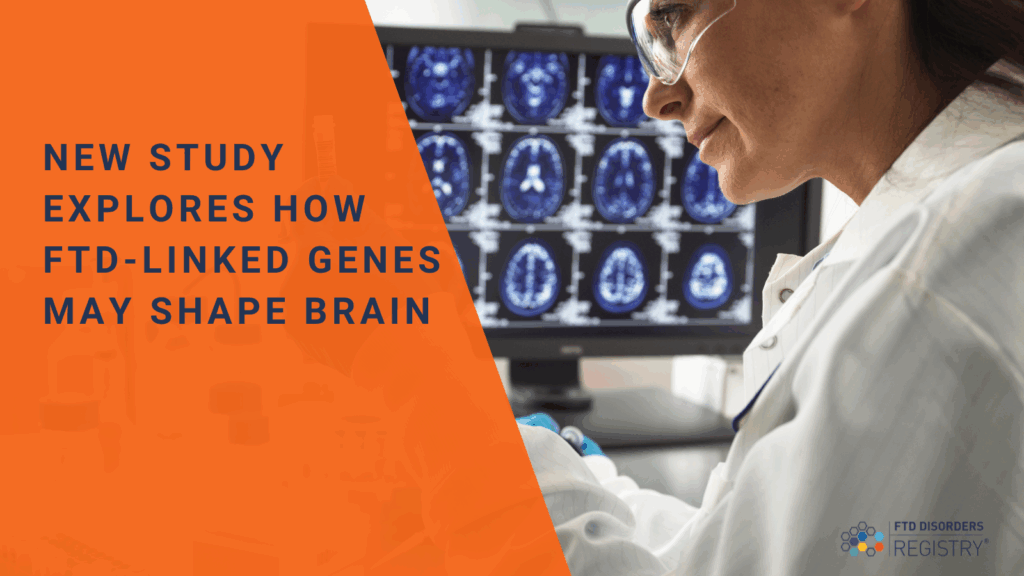PRESS & NEWS
New Study Explores How FTD-Linked Genes May Shape Brain

Researchers have long understood that frontotemporal degeneration (FTD) is a neurodegenerative disease that begins in adulthood. But new questions are emerging.
Researchers have long understood that frontotemporal degeneration (FTD) is a neurodegenerative disease that begins in adulthood. But new questions are emerging: Could genes that cause hereditary FTD also influence how the brain develops years, if not decades, before symptoms appear?
That is what the GENFI-NeuroDev Study, led by Dr. Elizabeth Finger and funded by the Canadian Institutes for Health Research, aims to find out.
What is the GENFI-NeuroDev Study?
GENFI-NeuroDev is an extension of the Genetic FTD Initiative (GENFI). This research focuses on children and teens aged 9 to 16 who have a biological parent or grandparent with a confirmed FTD-associated gene variant – most commonly C9orf72, GRN (progranulin), or MAPT (tau).
These genes are active not only in adulthood, when FTD symptoms appear, but also during key stages of early brain development, which continues into a person’s twenties. GENFI-NeuroDev is investigating whether these genetic variants subtly shape how the brain grows and functions in childhood, even in those who are healthy and symptom-free.
The goal: to identify early biological clues that could guide the development of new FTD treatments or prevention strategies in the future.
Who Can Participate?
Participants may be eligible if they:
- Are between 9 and 16 years old at the time of enrollment
- Have a biological parent or grandparent who has tested positive for an FTD-causing gene variant
Families already know that FTD runs in their family. However, parents and children do not need to know their own genetic status to participate, and no clinical genetic testing will be done on the child.
What is Involved?
Participants will complete:
- A neurological exam
- Cognitive and behavioral assessments
- An MRI scan
- Optional blood or saliva collection for genetic research
Each visit takes about 3-4 hours, with one visit now and a follow-up two years later if interested. No special preparation is needed. Travel costs and time are reimbursed.
Where Is the Study Taking Place?
Participating research sites include:
- Canada: Western University (London), McGill University (Montreal), Laval University (Quebec City), Sunnybrook Hospital (Toronto)
- Europe: Karolinska Institute (Stockholm), University College London (UK), University of Halle and University of Tübingen (Germany), Erasmus University (Rotterdam)
Interested but Not Near a Study Site?
The team can help you find the closest location or explore other options. For more information, contact the study coordinator:
cognitive.neurology@sjhc.london.on.ca
519-646-6100 (ask for Kristy Coleman)
By participating, families affected by inherited FTD can help researchers understand how the condition may influence the brain across a lifetime and contribute to discoveries that may benefit future generations.
Together we can find a cure for ftd
The FTD Disorders Registry is a powerful tool in the movement to create therapies and find a cure. Together we can help change the course of the disease and put an end to FTD.
Your privacy is important! We promise to protect it. We will not share your contact information.



